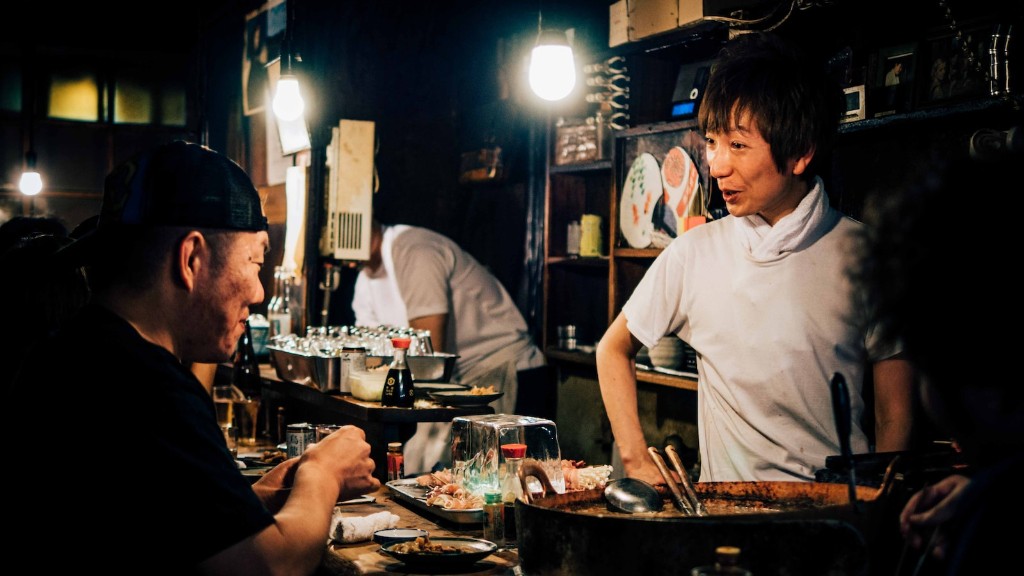Introduction to Constipation
Constipation is a common digestive issue that has been described for thousands of years, being as far back as the Babylonian era. It is normally associated with having fewer than three bowel movements in a week, difficulty passing stools, and having stools that are hard and dry, all of which can be physical, psychological or both. This digestive condition affects millions of people all around the world, and can create feelings of pain, exhaustion and frustration. Constipation has also been linked to other health issues such as irritable bowel syndrome (IBS) and colorectal cancer.
Constipation in Japan
On a global scale, Japan has one of the highest rates of constipation amongst adults in the world. In recent years, the number of people in Japan diagnosed with constipation has increased and it has become a considerable public health issue. Numerous studies suggest that the higher prevalence of constipation can be attributed to the lack of dietary fiber, low daily water intake, and inadequate physical activities due to overwork and a sedentary lifestyle – all of which are quite common in Japan. Unfortunately, the long-term effects of chronic constipation can include colonic malignancy, which is why constipation treatment and prevention is of such great importance in Japan.
Travelling in Japan with Constipation
Travellers who are already prone to constipation may find that their symptoms worsen when travelling in Japan, due to changes in diet and lifestyle. Diet-wise, visitors to Japan should conserve their dietary fiber intake and eat foods that are high in fiber. At the same time, they should avoid consuming processed foods high in sodium, fatty foods, white sugar, alcohol, and tea, and for best results, they should consume more vegetables, fruit, whole grains, black tea, and plenty of water. For physical activity, although many may find it difficult to go on regular walks due to both fatigue and the country’s hectic lifestyle, the importance of exercise cannot be overemphasized – even if it’s just a light session of stretching.
Managing Constipation with Medicines
The most common type of drugs prescribed to treat constipation in Japan are called bulk-forming and stimulating drops, which soften the faeces before it is eliminated. Laxative medicines are available in pharmacies in Japan, but a traveller from outside the country may find it difficult to purchase them due to language barriers. Supporters have pointed out that in the interest of safety, people travelling in Japan should bring an adequate supply of their own regular medications.
Issues Related to Constipation Treatment
Some experts have highlighted complications and misunderstandings that can arise when constipation is treated with medication, including dependency on acid-blocking drugs, not enough dietary fiber, and excessive use of laxatives. Furthermore, they have argued that many people with constipation in Japan are inclined to take laxatives for temporary relief, and end up over relying on this form of treatment. So, to this end, it is advisable for a traveller in Japan to speak to a medical professional about their individual condition before commencing any constipation treatment.
Modern Solutions to Constipation Treatment
Some specialists in Japan have suggested incorporating modern technology to tackle constipation. In particular, the use of mobile applications to monitor gut health limits, and offer suggestions tailored to the individual’s needs in regards to fibre-rich foods and psychological support. These methods are still in their infancy, but with the help of artificial intelligence, experts hope to be able to develop more effective solutions for constipation that are tailored to each individual’s needs.
Bioelectronic Nutrition Stimulation Therapy (BNST)
Bioelectroencephalography (BNST) is a type of therapy used to treat constipation in Japan. In this therapy, tiny electrodes are placed on the abdomen, allowing clinicians to estimate the conditions of the intestines and rectum, and then adjust the electrical stimulation being sent. Studies have shown that BNST helps to keep the body’s intestinal functions in balance, reduce the production of hormones that can cause constipation, and helps loosen stools by stimulating the nerves that control digestion.
Tai Chi and Acupuncture
The ancient practice of Tai Chi is being studied for its potential role in treating constipation in Japan. This type of exercise increases the muscles’ strength around the abdomen, which can be especially beneficial for those with constipation. In addition, acupuncture has also been found to increase the peristaltic movement of the bowels, which can help reduce constipation. Both of these practices can be used in addition to dietary changes and medications, to help relieve someone’s constipation while they are travelling in Japan.
Pelvic Floor Muscle Exercises
Pelvic floor muscle exercises (PFME) are becoming increasingly popular in Japan as an effective way to reduce constipation – and while they may be a little challenging to do, they are worth considering. When correctly done, these exercises can fortify the muscles of the pelvic floor, which are responsible for maintaining and improving digestive health. To ensure proper use, it may be helpful to speak to a physical therapist or medical practitioner to learn how to do these exercises correctly.
Communication and Education
The last strategy that should not be forgotten, and is just as important as the physical methods of constipation treatment, is education. With proper knowledge, people can learn how to identify their own symptoms, understand their causes, and be able to practice helpful coping methods. In addition, raising awareness about constipation and its treatment encourages those afflicted to seek help without embarrassment or judgement.
Conclusion
In conclusion, constipation is a common but serious concern in Japan. To manage constipation while travelling, one should maintain an adequate level of dietary fiber, regular physical activity, and adequate hydration. Additionally, modern technologies, such as Bioelectronic Nutrition Stimulation Therapy (BNST), Tai Chi and acupuncture, as well as pelvic floor muscle exercises, can all provide help and relief from constipation while travelling in Japan. Last but not least, communication and education are also essential for the prevention and treatment of constipation.


